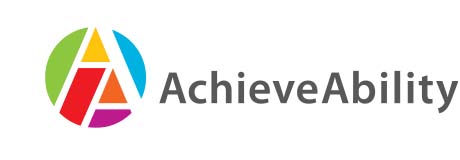WAC Research Seminar presentations
Westminster AchieveAbility Commission (WAC) Research Seminar
University of Westminster, The Cayley Room, 309 Regent Street, Thursday 23 May 2019
Seminar Title: ‘Neurodivergent Voices: good practice in the workplace’
Purpose: A research seminar profiling good practice in the workplace for the neurodivergent
Aim: To disseminate the profiled case study papers/ presentations within an E-Journal
Outcome: To inform and influence best practice in the workplace
Background and context:
In 2018, AchieveAbility produced the Westminster AchieveAbility Commission (WAC) report Neuro-diverse voices opening doors to employment investigating the barriers to employment faced by neurodivergent people. Following the report findings and to facilitate discussion on how the workplace could be made more accessible, AchieveAbility brought together stakeholders in the Workplace and Neurodivergent community. The University of Westminster kindly agreed to host this research seminar, which will investigate examples of good practice in the workplace for the Neurodivergent.
The following programme outlines these examples and presentations
Programme
Overview of the Event with Vice-Chancellor Dr Peter Bonfield, OBE FREng and Professor Debra Kelly, University of Westminster; AchieveAbility Board.
Overview of Westminster AchieveAbility Commission (WAC) Barry Sheerman MP Chair of WAC and Dr Ross Cooper, Chair of AchieveAbility Board; Editor and Co-Author of Neurodiverse Voices Report.
Dr Katherine Hewlett, AchieveAbility Founder and CEO; Co-Author of Neurodiverse Voices Report: Introduction to Panels and Case Study Talks.
Chair of Panel Sessions: Richard Pitts, Community, AchieveAbility Board.
Please click onto the PDF to access the speaker presentations
Panel 1
• ACAS Future Thinking on Neurodivergent Practice: Tom Neil, Policy Adviser and Guidance Writer. [pdf]
• Neurodiversity - A Union Perspective: Prospect’s Director of Communication and Research, Andrew Pakes. [pdf]
• Artswork Inclusive Practice: Jane Bryant, CEO [pdf]
• Supported Apprentice Internships: Claire Cookson Deputy Chief Executive Officer, DFN Charitable Foundation. [pdf]
Panel 2
• Inclusive Recruitment in the Heritage Sector: Becki Morris, Founder Disability Collaborative Network (DCN). [pdf]
• Workplace Assessment: Richard Todd and Katherine Kindersley, Dyslexia Adult Network (DAN). [pdf]
• Inclusion North: Project Manager Sandy Marshall and Craig Kennady. [pdf]
Facilitated Discussion with Audience on Examples of Good Practice.
Final Q and A with Panel Speakers (Chair, Professor Debra Kelly)
Drinks Reception, Networking and Film Show from Dyspla www.dyspla.com
